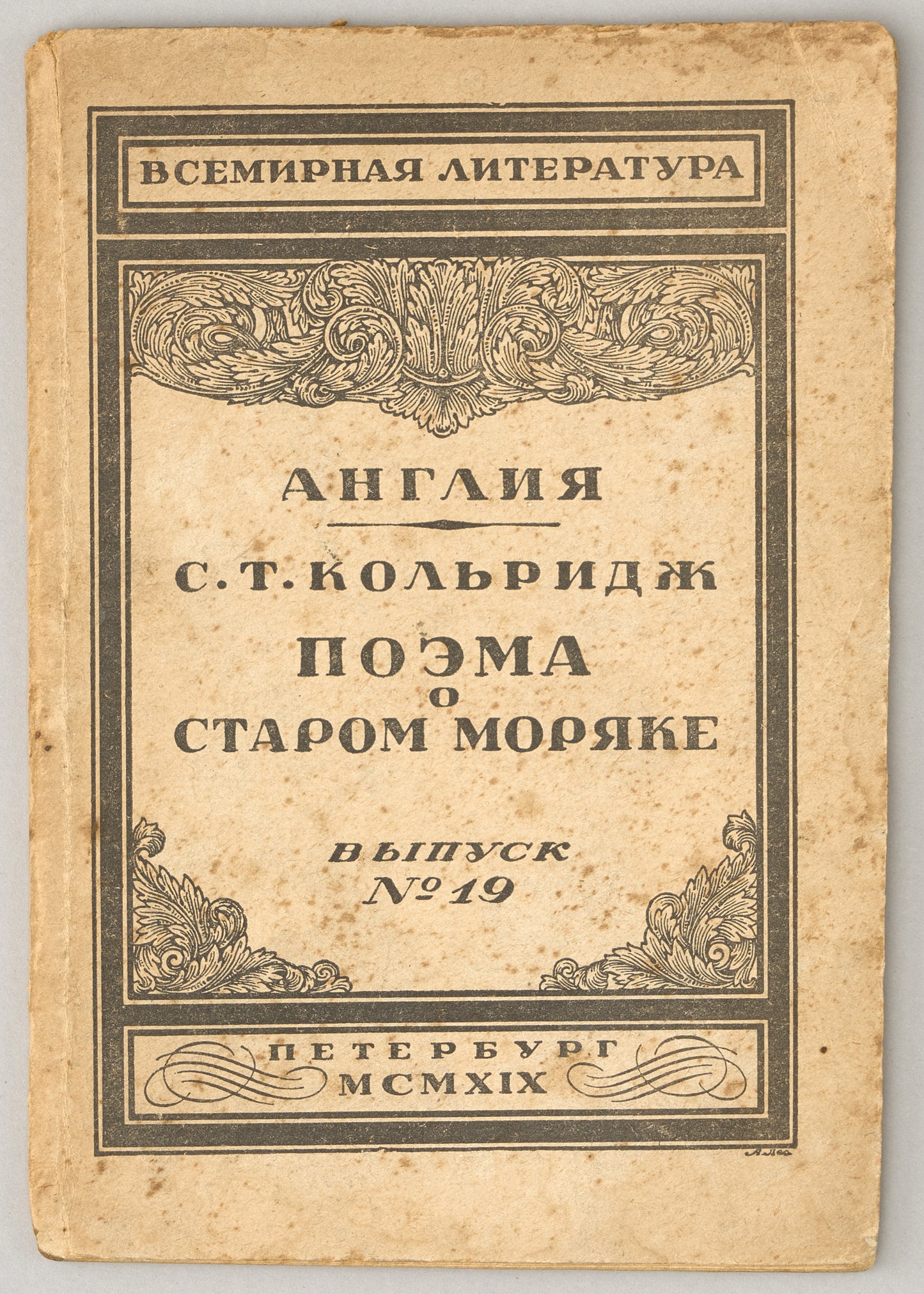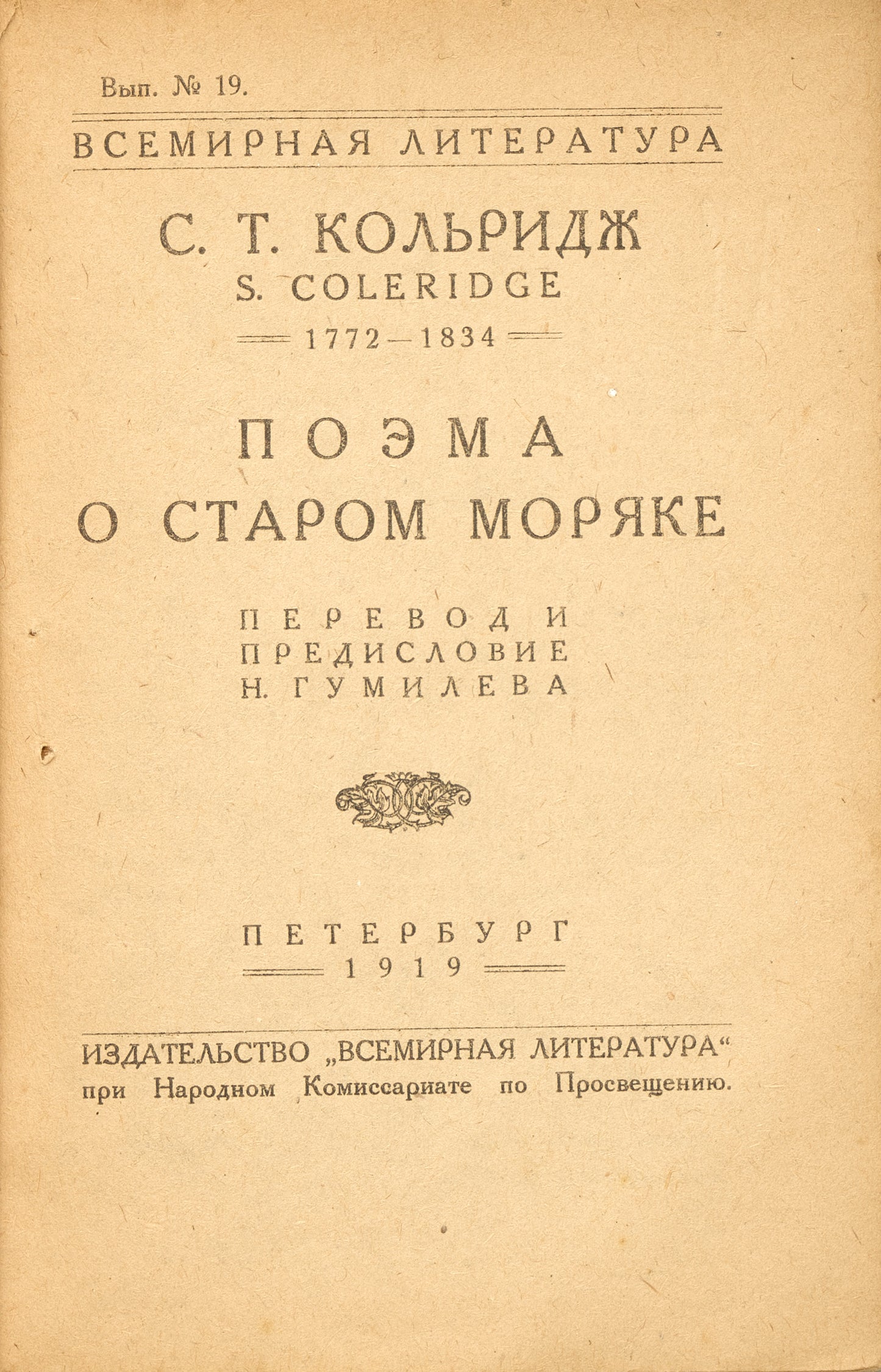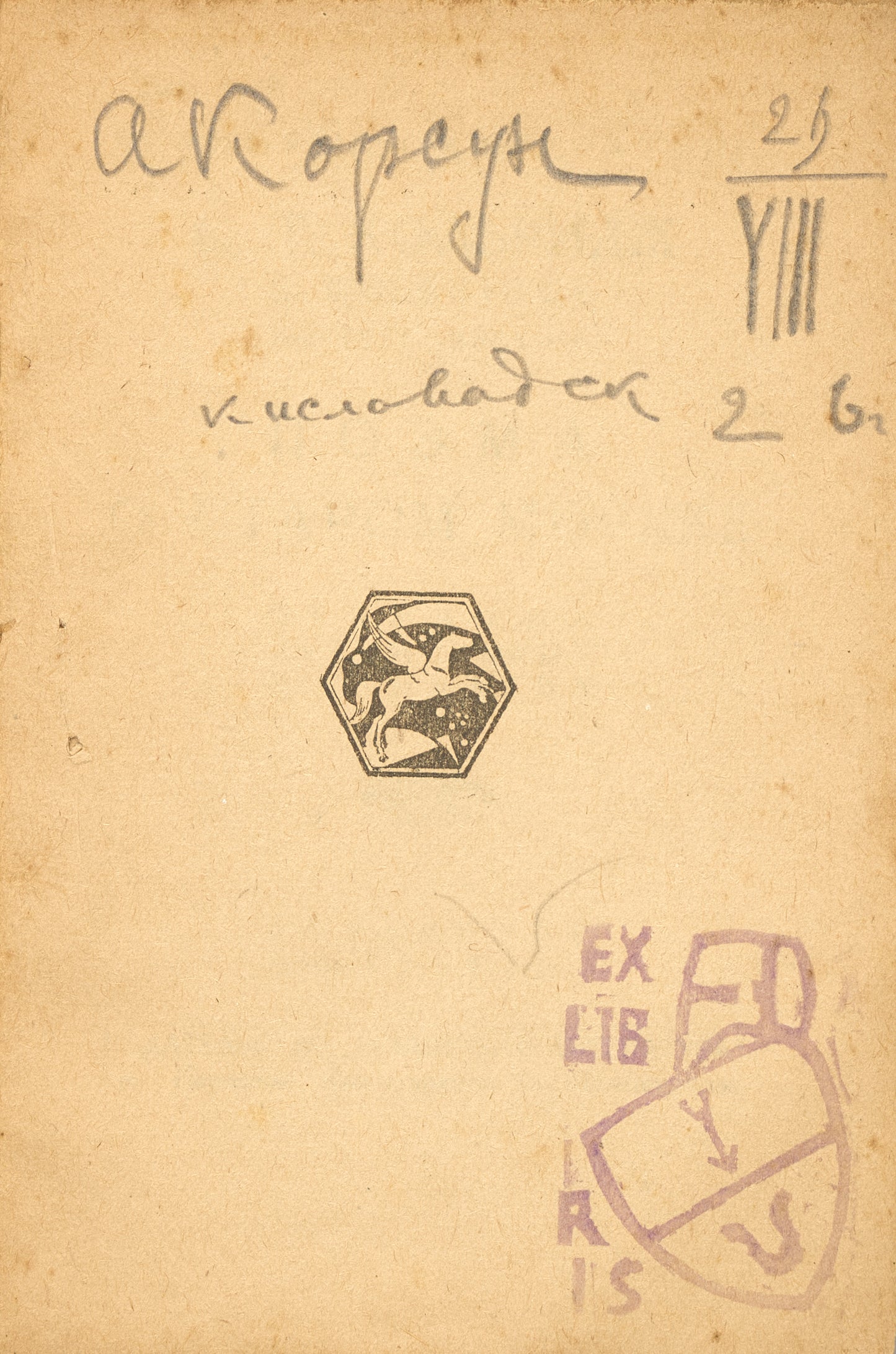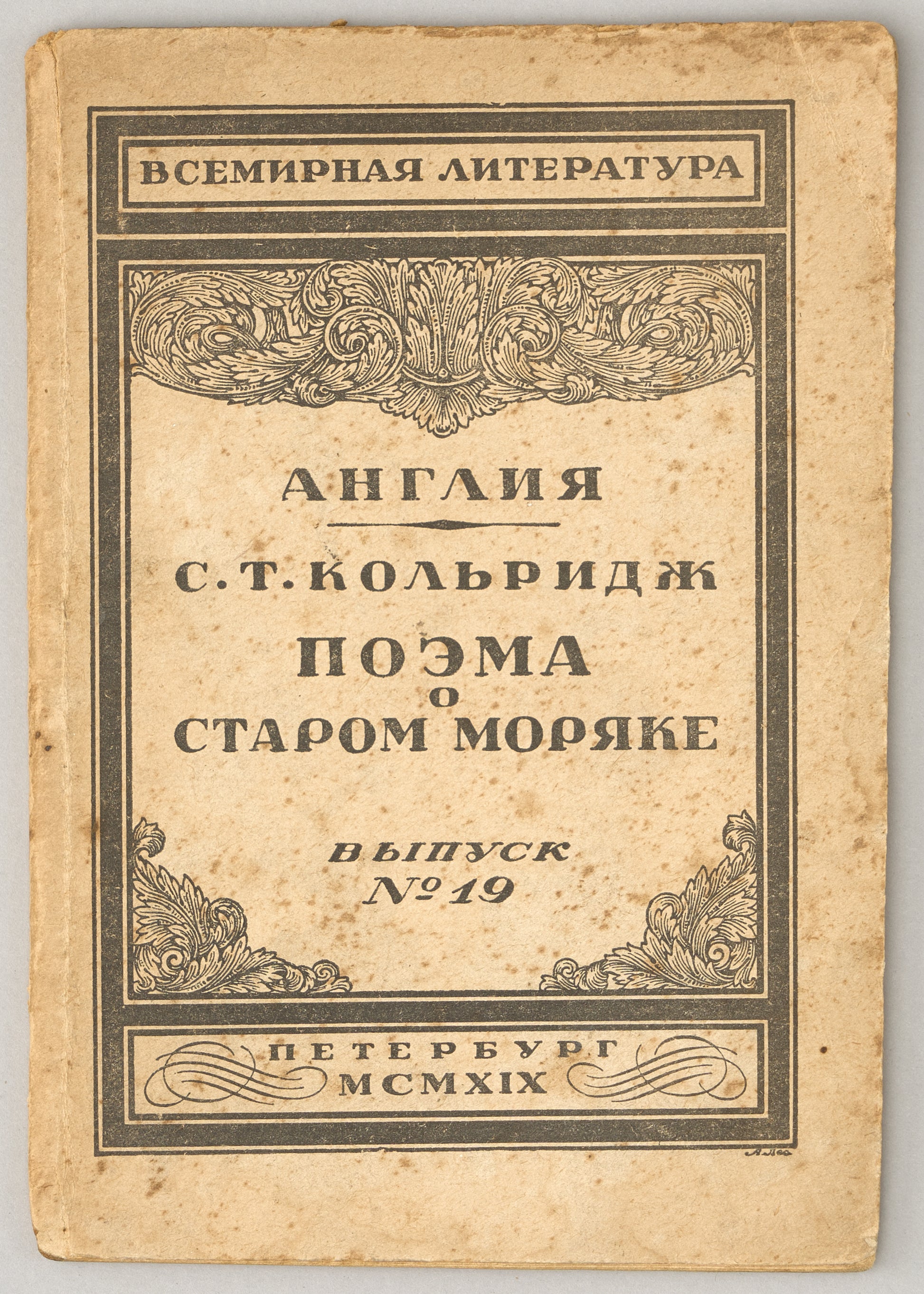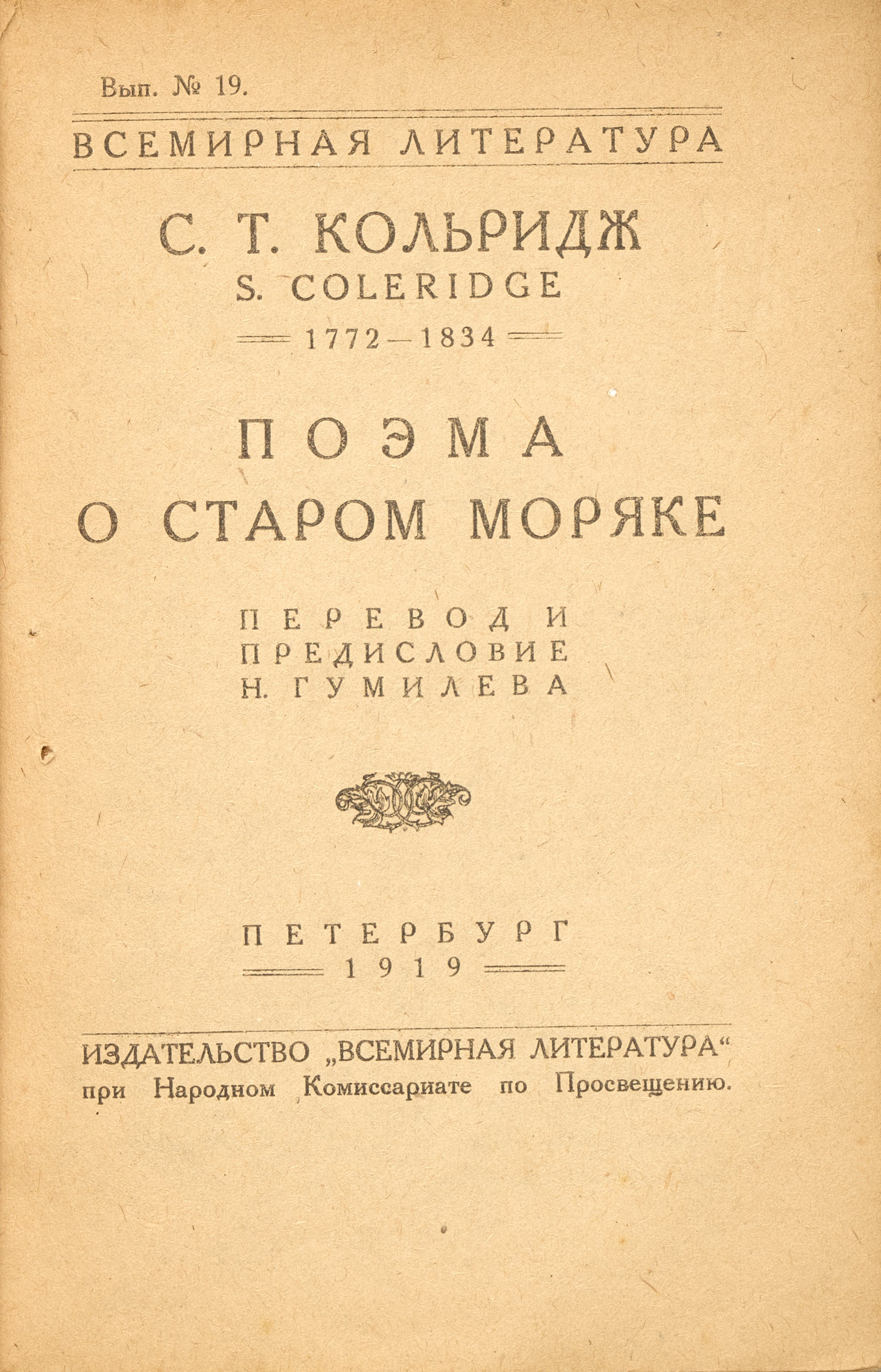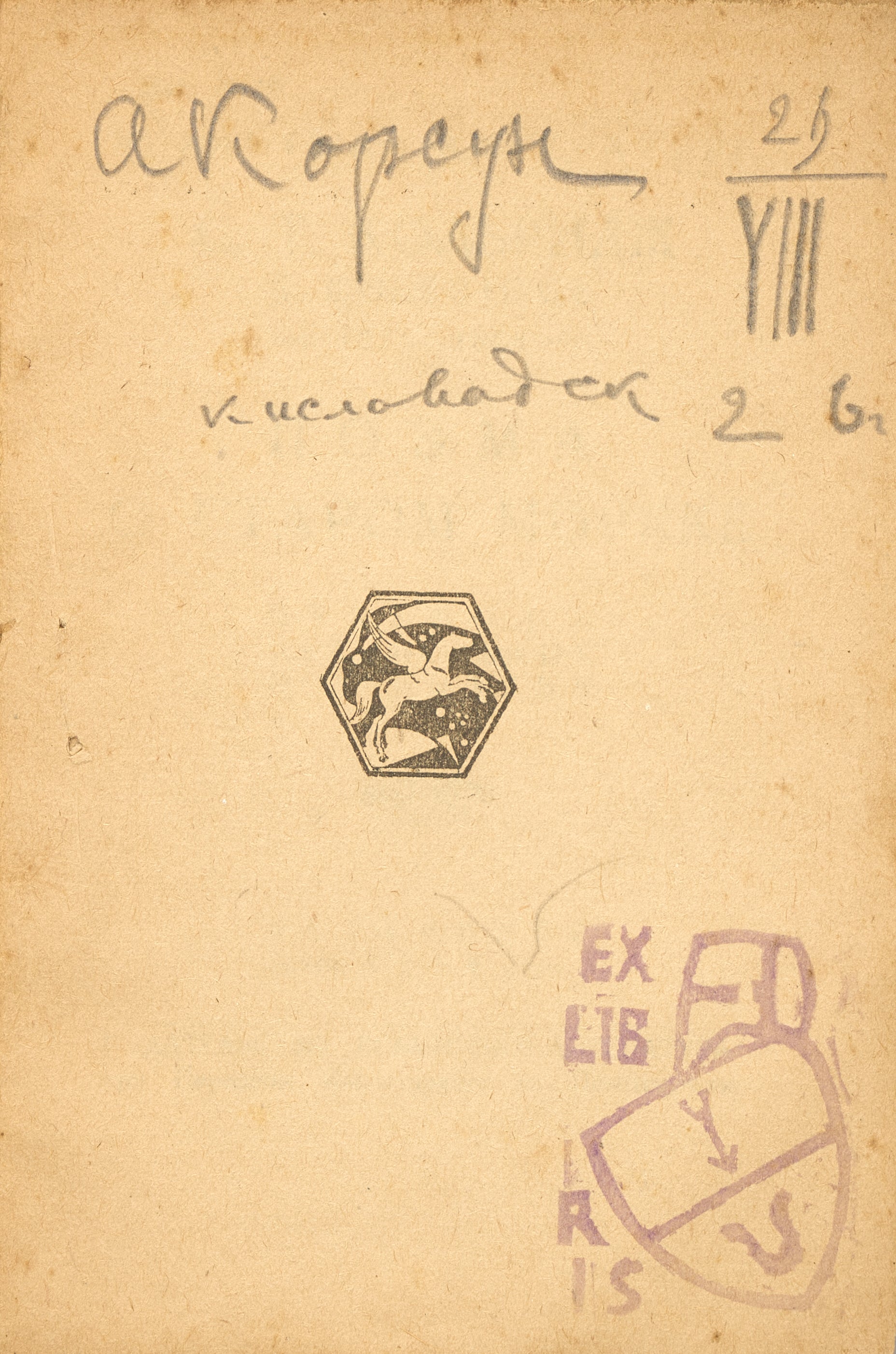Coleridge, S.T.
The Rime of the Ancient Mariner. Gumilev translated Coleridge
The Rime of the Ancient Mariner. Gumilev translated Coleridge
Couldn't load pickup availability
Coleridge, Samuel Taylor [The Rime of the Ancient Mariner]. Poema o Starom Moriake.
Series Vsemirnaia literatura/Angliia. Issue No 19.
Preface and translation by N. Gumilev.
Cover design by A. Leo.
Peterburg, Vsemirnaia literatura, 1919.
18mo, 39, [1] pp.
In original pictorial wrappers.
In good condition, wrappers foxed, small tear to left corner of cover, small loss to spine, owner mark on half-title, bookplate stamp on half-title.
First edition of this translation.
This poem, written by Samuel Taylor Coleridge (1772–1834), is often considered to mark a significant shift towards modern poetry and the beginning of British Romantic literature. It was translated into Russian for the first time in 1851 and the present translation appeared in Maxim Gorky’s publishing house, 'Vsemirnaia literatura' ('World Literature'). The translator was Nikolay Gumilev (1886–1921), a poet and co-founder of the Acmeist movement and husband of Anna Akhmatova. Even though the translation was made more than a hundred years after the creation of the original, it is still considered 'almost faultless' to this day. Gumilev meticulously adhered to the 'nine precepts of the translator' that he established, carefully observing the number of verses, meter, rhymes, vocabulary, and sense of the original. Furthermore, the preservation of Coleridge’s glosses (marginal notes) in Gumilev’s translation demonstrates his commitment to remaining faithful to the original work.
It’s interesting that in the preface, Gumilev compared the youth of Coleridge and Gavriil Derzhavin, one of the most highly esteemed Russian poets before Alexander Pushkin, who were contemporaries. It is worth noting that Gumilev’s own original works sometimes bear similarities to Coleridge’s poem, such as in the poem 'Fra Beato Angelico' and the lyrical ballad 'Appointment'.
Two years after the publication of this translation, Gumilev was arrested and executed by the Cheka, the secret Soviet police force. The translation was later republished in 1974 in a collection of Coleridge’s poems, hidden in an attachment.
Most likely, the copy is from the private library of the poet and translator Andrei Korsun (1907–1963), who worked at the Hermitage Museum and was best known for the second full Russian translation of 'The Poetic Edda'.
OCLC locates three copies of this edition: in the British Library, the Princeton University Library and the Harvard Library.
